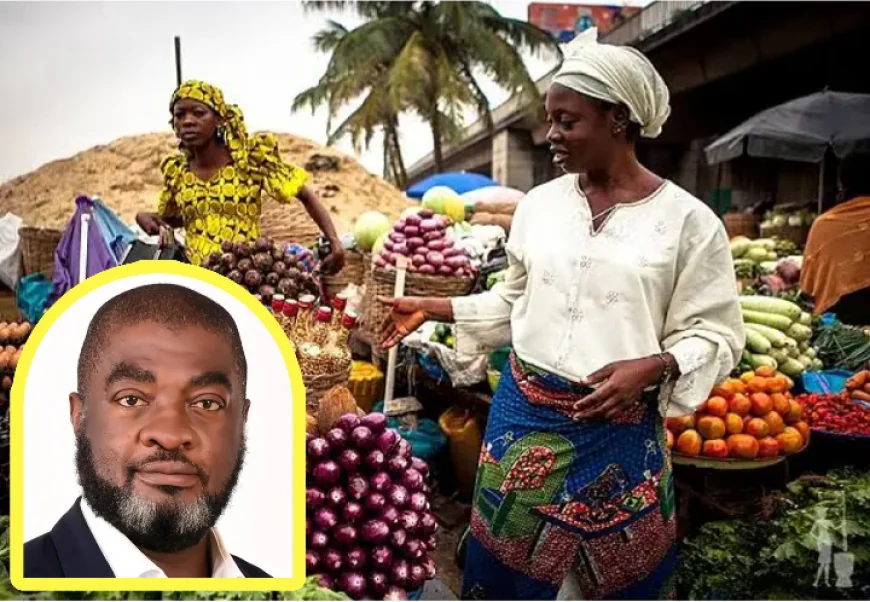Cartels at the Market: Dr. Ofosu-Dorte Exposes Price Manipulation by Market Queens & Transport Unions
Food Inflation Not Just About Supply — Cartel Influence Driving Up Costs for Low-Income Ghanaians

At the 2025 Joy Business Economic Forum, legal and economic policy expert Dr. David Ofosu-Dorte sounded the alarm on a hidden driver of Ghana’s soaring food inflation — cartel-like behaviour by market queens and transport unions.
According to Dr. Ofosu-Dorte, these groups have gained strategic control over food distribution channels and transportation, allowing them to manipulate prices and artificially inflate the cost of basic food items.
“It’s not just a supply issue. These groups operate like cartels,” he said. “They determine how goods move and what they cost at the final point of sale, and the ordinary Ghanaian bears the burden.”
■ Market Monopoly
Dr. Ofosu-Dorte explained that market queens — often dominant figures in urban marketplaces — collaborate with transport unions to create a tight grip on food flow from farms to cities. This influence, he noted, distorts prices far beyond what is dictated by genuine market forces.
“Even when farm gate prices are low, consumers in Accra and other urban centres see none of that benefit,” he noted.
■ Impact on the Vulnerable
This price manipulation, he warned, disproportionately affects low-income households, who spend the bulk of their income on food. It also undermines broader efforts to stabilize inflation and reduce the cost of living.
Dr. Ofosu-Dorte called for urgent policy intervention, including enhanced regulation, the empowerment of farmer-based organizations, and competition reforms within the food supply chain.
“If we don’t break these monopolies, food inflation will remain stubbornly high — no matter what fiscal or monetary policy we apply,” he cautioned.
The revelation has sparked calls for further investigation into non-transparent practices within Ghana’s informal market system and has intensified the debate on how to restore fairness and efficiency to the food economy.


